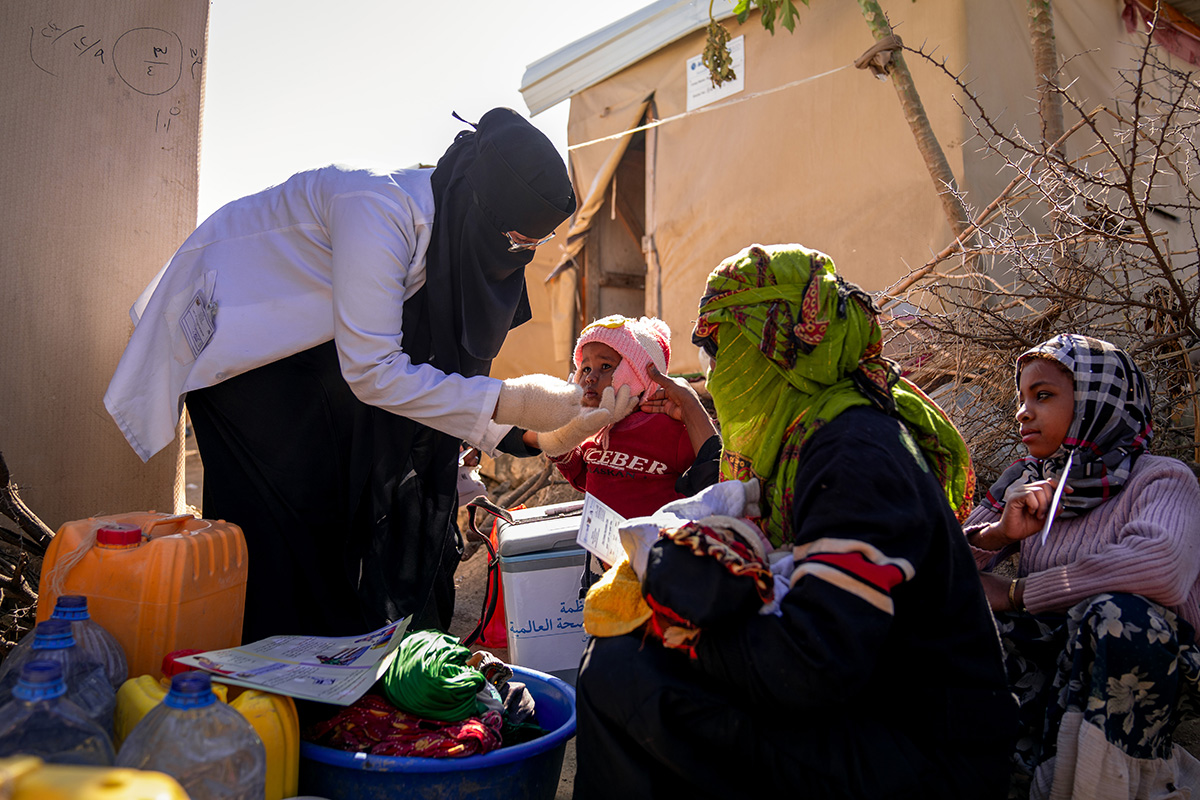 16 January 2025, Sana’a, Yemen – As part of WHO’s Health Emergency Appeal for 2025, the WHO country office in Yemen is appealing for US$ 57.8 million to reach 10.5 million people with life-saving emergency health assistance in 2025.
16 January 2025, Sana’a, Yemen – As part of WHO’s Health Emergency Appeal for 2025, the WHO country office in Yemen is appealing for US$ 57.8 million to reach 10.5 million people with life-saving emergency health assistance in 2025.
“Every year of this prolonged crisis, human vulnerabilities increase, and more families, women and children are exposed to diseases that can be prevented through access to basic services,” says Dr Ferima Coulibaly-Zerbo, WHO Representative and Head of Mission in Yemen. “Urgent support is needed to enable the overstretched health system to respond to this devastating health emergency, in which 19.6 million people struggle to access the most basic health services and hundreds of facilities are at risk of closure.”
In 2024, Yemen reported over 250 000 suspected cholera cases and 861 associated deaths, the highest burden of cholera globally. The situation is compounded by recurrent outbreaks of other diseases, including measles, dengue fever and polio. Additionally, it is estimated that over 609 000 children are suffering from acute malnutrition.
Moreover, the impact of climate change is becoming increasingly severe in the country, with annual events threatening many lives; floods in 2024 affected more than 1.3 million people, resulting in 427 deaths and injuries, and damaging infrastructure such as the electricity supply and health facilities, as well as stocks of medicines, supplies and equipment, in multiple governorates.
Compounding this situation are the escalating regional hostilities that have triggered retaliatory airstrikes and disrupted critical imports and the operation of health facilities, threatening Yemen’s fragile health system and further straining an overwhelmed humanitarian response.
“The funding received from international donors has enabled WHO and its partners to sustain lifesaving health services in Yemen, addressing critical health priorities and responding to multiple health crises, and has enabled the delivery of medical equipment, supplies, training and other support to hospitals and health facilities that provide a wide range of services,” explains Dr Ferima Coulibaly-Zerbo. “Nevertheless, funding for health fell far short of the target for 2024, forcing WHO and many health partners to choose between equally critical services.”
The funds provided to the WHO-led Health Cluster in 2024 represented just 49.5% of the US$ 249.5 million required to provide the needed critical services to the most vulnerable people in the country. This dire situation calls for greater international support and a coordinated response to address the needs of communities grappling with a decade-long conflict.
Yemen requires sustained support from the international community to ensure that key health priorities are addressed. This includes: (1) strengthening disease surveillance, laboratories and rapid response capabilities to promptly identify, treat and control epidemic-prone disease outbreaks, minimizing their public health impact; (2) the procurement and distribution of essential medicines, medical supplies and equipment to improve emergency preparedness and response; (4) building the technical capacity of health care workers in the management of severe cases of communicable diseases, injuries and mass casualties, to reduce the associated morbidity and mortality; (5) prioritizing access to primary health care services by vulnerable groups, especially in remote and hard-to-reach areas; and (6) building the capacity of the health authorities and health partners to provide minimum service packages and enhance preparedness for health emergencies through assessing risks and developing contingency plans for the priority hazards.
“Every day the absence of safe services is threatening millions of lives, malnutrition is taking away the future of countless children, and preventable diseases are affecting many families when they should not,” says Dr Ferima Coulibaly-Zerbo. “The people of Yemen must not be left behind. The efforts made by the international community are contributing to a future where inclusive and sustainable development is not a far-fetched hope.”
Related sources
Media contacts
WHO Yemen Communications
Email:
About WHO
Since 1948, the World Health Organization (WHO) has been the United Nations agency dedicated to advancing health for all, so that everyone, everywhere can attain the highest level of health. WHO leads global efforts to expand universal health coverage, direct and coordinate the world’s responses to health emergencies and connect nations, partners and people to promote health, keep the world safe and serve the vulnerable.


